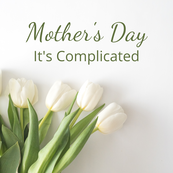 I don’t love Mothers’ Day, but I don’t hate the day. I have a great mother and I’m a fan of the original mother’s day proclamation against war. And I think it’s okay to have days that apply to some people, but not others. Some of my not-loving of Mathers’ Day comes from the fact that I universally don’t like sweetness and chocolate, flowers and light. Or more accurately I don’t like the simplification of complicated things. If I haven’t appreciated my mom all year, I don’t think Mothers’ Day flowers will fix that. And if I can’t wrestle with what’s wrong with the stereotypes of mothering on the day that’s about mothering, then am I really appreciating it at all? Mothers’ Day is awful for mothers who don’t have homes. Many have had their children taken from them, some due to abuse, but most simply because they are poor, or black, or brown. Not surprisingly, mothers who have lost their children have a harder time with recovery and a harder time with managing their mental health. That creates a circle, as managing recovery and mental health is necessary to the plan that will perhaps earn them contact with their child. It’s a horrible system we have where we try breaking mothers hearts to see if that will possibly make it better for their children. Mothers’ Day is complicated for children. Complicated for children who are adopted, children in foster care, children whose parents have hurt them, children whose parents have passed, children whose parents are drunk or high, children whose parents stay too removed, children whose parents are smothering, for children who cannot ever live up to their parents, and for children who cannot let go of their parents expectations. Who is left? Mothers’ Day enforces a binary that doesn’t exist—a gender binary, a parenting binary, and a good vs. evil binary. My distaste for the day comes in part from the fact that I am not a mother, and wish that I had had that opportunity. It comes in part from sitting with my sister who has lost a daughter. It comes in part from sitting with unacknowledged trans moms. It comes in part from sitting with so many people with such complicated lives. But I think it comes mostly from our ability as a culture to sanitize every radical and complicated thing. Julia Ward Howe was not asking for chocolates or a card when she declared “‘Disarm, disarm! The sword is not the balance of justice.’ Blood does not wipe out dishonor nor violence indicate possession.” Link to the full proclamation. That this holiday was first proposed by a woman who both hated motherhood, and yet stayed with her husband rather than be separated from her children, makes the hallmarkification of the holiday that much worse. Link to book review of The Civil Wars of Julia Ward Howe. And yet I loved my chance to chat with my mom on this day, and was jealous of my brother's chance to cook for her. It was a joy when, during worship, someone interrupted my welcome to the mothers present to shout “and aunts”. It pierced my heart when my sister thanked me for the way that I mother/aunt my nieces and nephews. I don’t love Mothers’ Day, but I don’t hate it, either. It’s complicated.
2 Comments
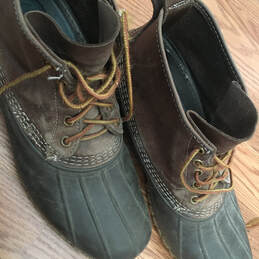 There was much talk on Facebook those days, about the boots that the police officer gave to a guy who was sitting shoeless on the streets of NYC. The officer saw him and reacted out of compassion and bought him warm socks and boots. And someone took a picture as it happened and posted it on Facebook and we love the fact that he did this and so we all, millions of us, me included, we shared that picture of compassion. And someone thought it would be great to follow up and find the guy-who-got-the-boots, and they found him and he wasn't homeless and he was barefoot again. He didn't have the boots. It turns out, also, another women came forward and she had given the guy-who-got-the-boots shoes, too, a few weeks earlier. And so we started blaming poor people and homeless people and alcoholics and people with mental illness, we, those of us who have enough, we were hurt by this story. I'm not poking fun here, honestly, I personally was hurt to imagine that the guy didn't appreciate the gift. It felt like a scam. It made my heart hurt. How on earth can we change the world if it goes like this: we see a problem and we figure a solution, and we pour out our compassion, and then it turns out that that solution wasn't the right one? All this happens and I come home from being on the streets, and I'm upset that Sam got sick and had his hours reduced, and so now he is homeless. Every time I talk to him he wants to talk about how to get his brother to let him see his grandmother. I want to talk to him about how to get housing, but what bothers him, in 24 degree weather, what bothers him is that his brother won't listen. “How can I get him to understand” Sam asks me. And I listen to him. And I'm upset about Jack who sleeps in the woods near Institute Park. Jack waits until after 2am, so the police won't wake him, and he is not worried about finding housing. He is worried about his next appointment with the pain specialist. Because two years ago he had leg surgery and they did something wrong and now it hurts all the time, and he's been clean from drugs for five years, but as an addict he can't take most drugs for pain so they are going to give him a cortisone shot but they can't do that for two more weeks. I want to talk to him about moving inside while he waits, but he won't talk about that, he will only talk about whether cortisone will work, and why can't he get an earlier appointment. And so I'm hurt by the fact that Sam won't let me help him to get housing, and I'm hurt that Jack won't go inside, and I'm hurt by this damn not-homeless-guy in New York and I come into my house and I sit down on my lovely couch, where there is this quilt. This quilt was made by Mary Jane Eaton, one of the founders of Worcester Fellowship. When I asked her about the colors, because really, not everyone puts purple and orange together in a quilt, and she said simply, well, “Liz, God is orange”. That’s weird. And yet it’s true, the quilt exudes God. It exudes God not because of its calming, homogenous, single color charm. It exudes God because it emphasizes difference. The purple and the orange, so different from each other, trying to hang out together, expressing God together. I think the trick to expressing God is the differences. It is the way we notice that we aren't all the same. The way we trust that our differences are a good thing. You've got to love the fact that we, human beings, are completely different from each other. So different, that we can't know what another person needs without talking to them. Without asking them. Without spending time finding out what is happening in their life, and in their week, and in their day, and in this very minute. We can't just declare "people need this" and have that turn out to be the right answer. We can’t see a guy with bare feet and know that what he needs is shoes. I know that I am uncomfortable with recognizing difference in that way. For me, when it’s cold and you have bare feet, boots sure seem like the answer, and naked hands and heads need gloves and hats. The solution to hot days is water and juice boxes. I want to stick with what I know, what I feel, what I would want. To find out what someone else wants I have to stop and listen before I provide boots, hats, water, juice. Yes, in fact, I have to listen before I know if a person without a house is looking to get one. It takes time. It takes effort. It takes closing my mouth and listening. Shared Ministry starts with listening. Trusting people to know their own needs. Trusting God that if we help people in the ways they say they want help, perhaps later they’ll help us by wanting shoes, or hats, or houses. #5loaves2fish12volunteers #RoadTriptotheGoose #WildGoose2021 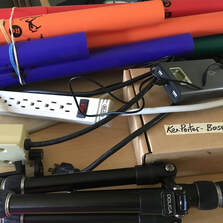 I own a lot of stuff. As I gather that stuff to start my #RoadTriptotheGoose it occurs to me that I may not need this much stuff. I read science fiction. Thus, as I pack my car I always imagine "what if this is all that I'll have if the world-as-we-know-it ends on this trip"? What will I be sorry that I left behind? Certainly the 12 boxes of photos in my attic, which I have not looked at in more than 20 years. My sewing machine. Two bookshelves full of fabric. Hiking poles? Batteries? All these things are important, right? What is the modern day equivalent to the man who stores things up and the dies suddenly (Luke 12:16-21)? I do not have an excess of grain, does that mean I'm off the hook? I once asked a woman in a small town in Guatemala if I could take her picture. She said yes, but she had to run home first to get her other dress. That is, she had two, the one she was wearing, and the other one, that was for pictures and church and weddings and such. I saw a woman in India wearing half her sari while she washed the other half. I know women in Worcester who go braless because bras for large sizes are in excess of $50 each. In the meantime, I'm here debating whether I can go camping for four days with four outfits. What if it rains and one gets muddy? Packing is the art of figuring out what things will be important for the next number of days. What will be the weather, and what will make me uncomfortable, and what do I want to eat? What will I wish I had with me for the end times? It turns out that it is also time to reflect on my accumulation of things. What would it look like to live with less? And if I gave up my stuff, would I replace it with God? So it is with those who store up treasures for themselves but are not rich toward God. -Luke 12:21 I don't have any answers. Lots of stuff and lots of questions. |
My ThoughtsFor my organized thoughts, see my book Five Loaves, Two Fish, Twelve Volunteers: Developing Relational Food Ministries. In this spot are thoughts that appear for a moment--about food programs, mission, church, building community, writing, and whatever else pops into my head. History
January 2024
Categories
All
|
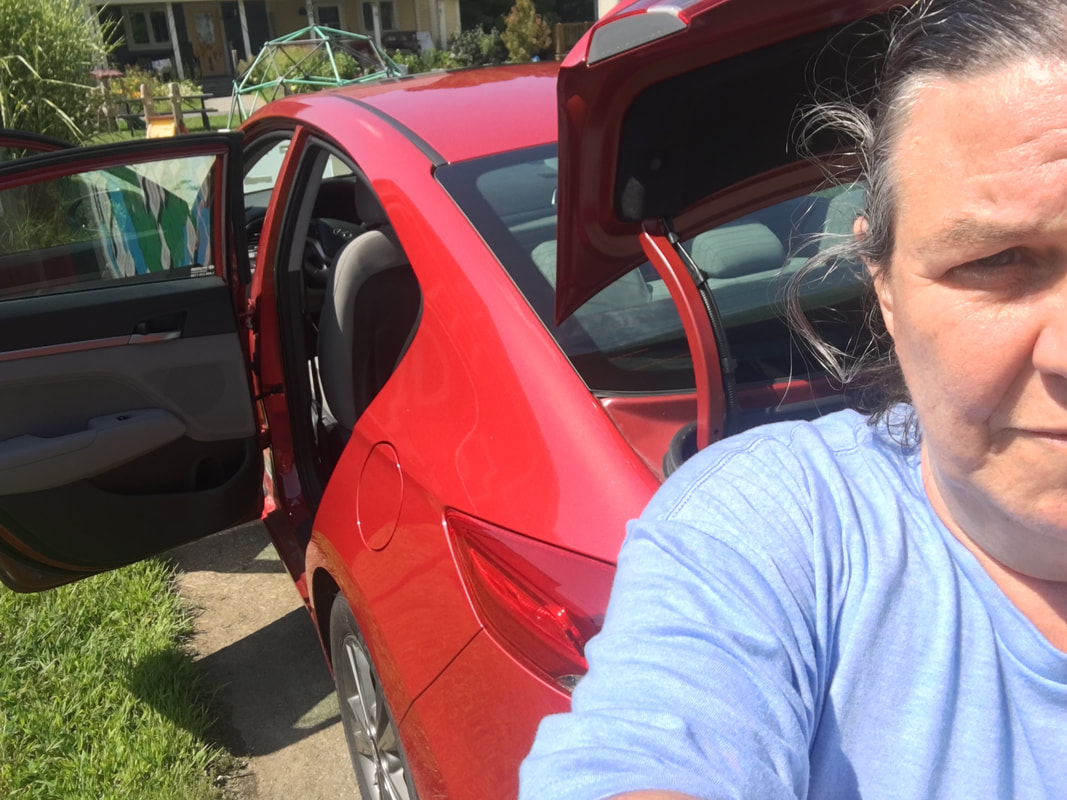
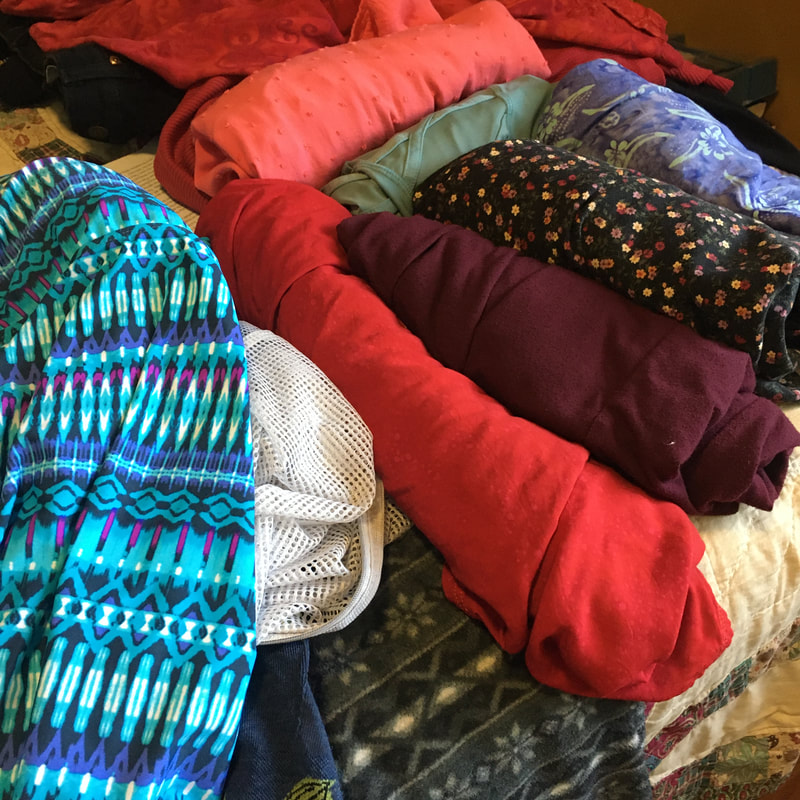
 RSS Feed
RSS Feed